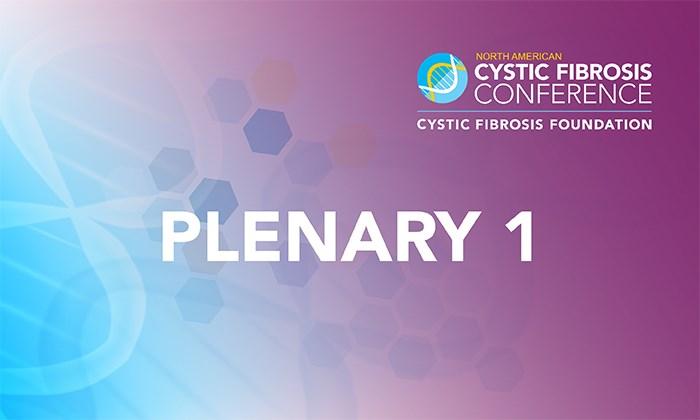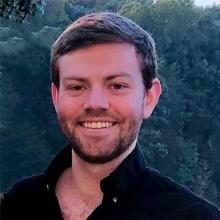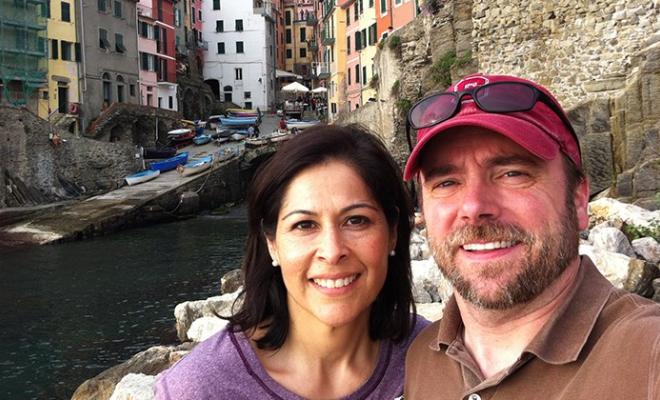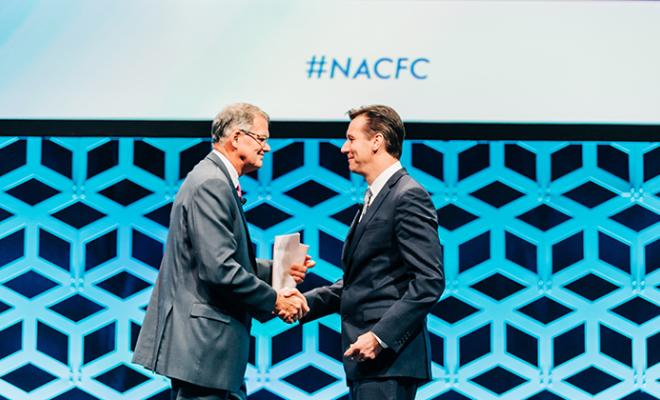During plenary 1 of the North American Cystic Fibrosis Conference (NACFC), Drs. Brian Davis and Maria Limberis present an incredible amount of information on where we stand in successfully creating genetic-based therapies for cystic fibrosis. For those of us living with CF, these treatments represent something that we've dreamed of for our entire lives: a cure. This plenary provides a deep dive into the scientific basis of making these treatments a reality. Below, I've listed four key takeaways from the plenary, "Laying the Foundation for the Path to a Cure: The Fundamentals for Genetic-Based Therapies."
Watch the full plenary on Facebook Live.
Takeaway 1: Scientists are making real strides toward creating a genetic-based treatment for CF, not just talking about it.
When the Cystic Fibrosis Foundation announced its Path to a Cure initiative last year, I felt excited, yet cautious. I have always felt that a genetic-based cure for CF was the end goal of CF research, which would hopefully be made eventually, but not for decades to come. Although I was thrilled by the announcement, I worried that genetic therapies for CF were still entirely theoretical. Plenary 1 of this year's NACFC, however, has given me real hope. The first presenter in the plenary, Dr. Davis, discussed the cellular defects that cause disease in people with CF and highlighted several different types of treatments that could fix these issues.
The second presenter, Dr. Limberis, continued by outlining the barriers that need to be overcome before a genetic therapy could be successful, then described the progress that has already been made to address these obstacles.
The creation of a genetic therapy for CF is a daunting task that will require an incredible amount of work, according to the presenters. However, they also demonstrated that researchers have a concrete understanding of the work that needs to be done and realistic plans for how to complete it.
I'm no longer worried that scientists won't start working on a genetic cure for CF for 50 years; the Path to a Cure initiative is funding that work right now.
Takeaway 2: The CF Foundation is working on genetic treatments to fix the root cause of CF for every single person with CF, regardless of which mutations they have.
Like many in the CF community, the specific combination of mutations that I have in my DNA have made me ineligible for any of the first modulators. While I was overjoyed that so many people with CF had access to such incredible treatments, I also felt frustrated and wondered desperately when scientists would create a modulator for those of us with a less common mutation. Although that dream finally came true for me with last year's approval of Trikafta®, there are many people with CF who are still waiting for a treatment that will work for them. Plenary 1 of this year's NACFC was aimed directly at these individuals to let them know that they have not been forgotten.
The presenters discuss several different potential therapies that are applicable to every person with CF, regardless of their mutations. A genetic therapy could bypass the issue of differing mutations causing disease in a different way by replacing the entire defective cystic fibrosis transmembrane conductance regulator gene.
By focusing on these types of treatments, the CF Foundation is sending a clear message: Their top priority is curing CF for everyone with no one left behind.
Takeaway 3: It is possible that a genetic therapy for CF could be made that has permanent effects, but this might be more difficult than creating a therapy that has to be reapplied regularly.
The presenters discussed multiple potential methods of genetic treatments for CF. Each of these methods addresses the root cause of CF in a different way with both benefits and drawbacks. For the people with CF who would be using these treatments, the primary difference would be how often they would need to be re-administered. The best-case scenario describes a treatment that only needs to be performed once and has long-lasting benefits. This could be done by carefully directing the treatment toward specific stem cells in the lungs, which constantly copy themselves to make new lung cells. Fixing the DNA of these cells would allow every new cell that is made to function normally. Although this would be incredible, those cells are very difficult to access because they are heavily protected.
Replacing the DNA of other lung cells would be easier, however, unlike stem cells, other lung cells turn over frequently and would be replaced by new, untreated cells. Eventually, patients would require further doses to receive benefits.
Any treatment that could effectively cure CF would be absolutely life-changing for those of us who are living with the condition, regardless of the number of times we had to receive it.
It would be better to have a treatment that we could use once to cure our condition and then never have to worry about doing again.
Takeaway 4: Research on genetic therapies is mainly focused on ways to restore function to the lungs, not the whole body.
The science behind these genetic treatments is complex, and it will not translate into an all-in-one pill that we could take and see benefits in our entire body, as each body system has its own unique challenges for creating a genetic therapy. Obviously, the lungs are the major source of serious illness in people with CF and are a natural place for researchers to start.
However, CF truly is a disease that affects the entire body. Many people with CF deal with symptoms from the gastrointestinal tract, liver, pancreas, or other areas of the body. Treatments for these areas of the body are vital but might take a bit longer than those for the lungs. Still, there is good news. The presenters state that the techniques learned from any successful treatments for the lungs might be applicable to other body systems, which would -- hopefully -- result in therapies targeting these areas to come relatively quickly after those for the lungs.
As I said before, this plenary left me with so much hope for a genetic-based treatment in the future. You can watch the full plenary on Facebook Live.
Interested in sharing your story? The CF Community Blog wants to hear from you.






